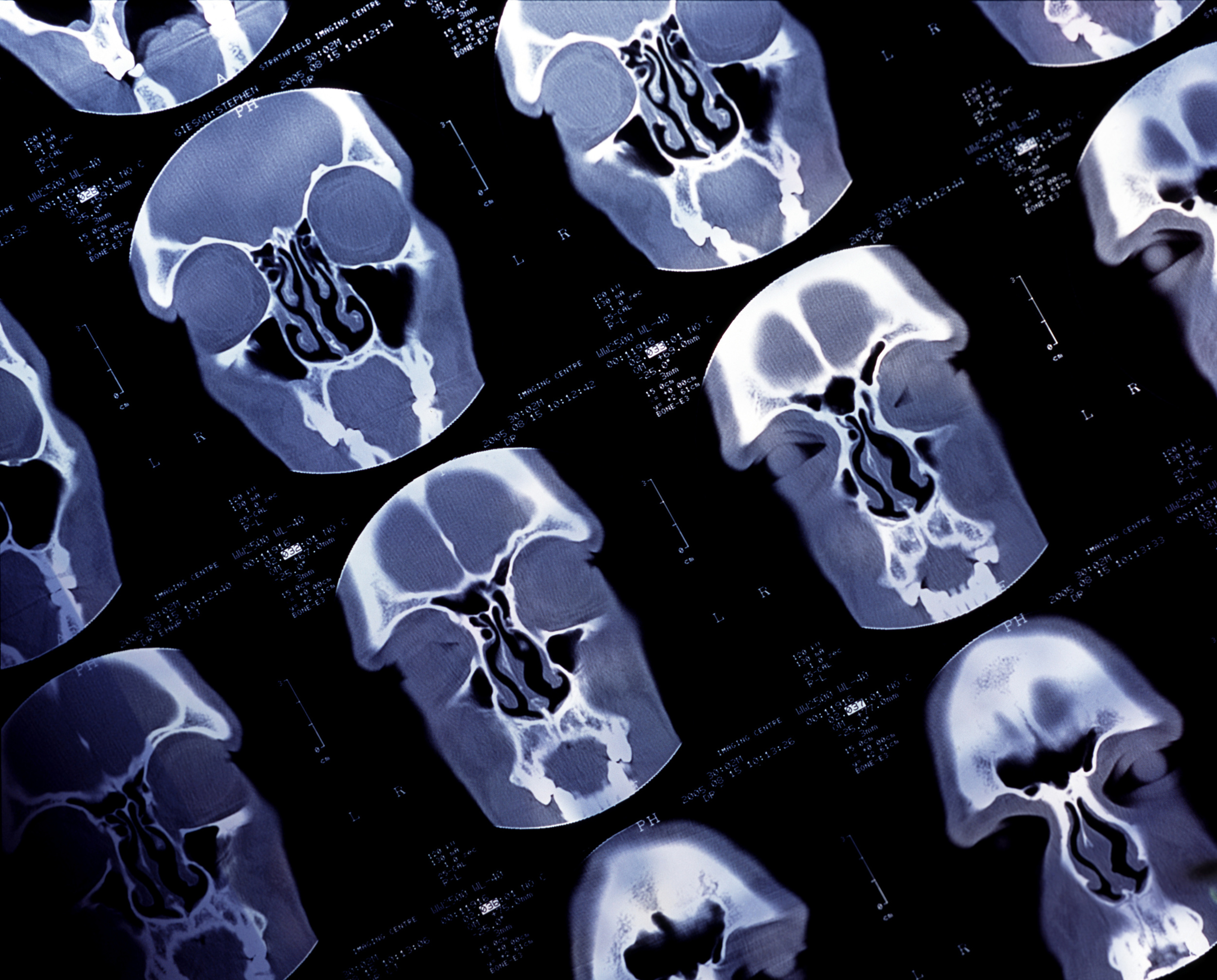ACUTE SINUSITIS
The sinuses are small spaces inside the cheekbones and forehead that are filled with air and lined with mucous membrane. It is not known for sure why we have sinuses, but it is thought that they keep your nose from drying out; help improve the sound of your voice; and strengthen the immune system of the nose.
Sometimes, the sinuses can become swollen and inflamed and the narrow drainage channels can become blocked. This stops the sinuses draining, and mucus builds up inside the sinuses, leading to discomfort and sometimes intense pain in the nose and across the cheeks and forehead. This condition is called acute sinusitis.
What causes acute sinusitis?
Acute sinusitis typically develops as a result of a viral infection such as cold or ‘flu. This will cause a viral sinus infection; but if bacteria are present in the sinuses it can become a bacterial sinus infection. This is less common, but usually more severe.
Other causes of acute sinusitis include:
- tooth infection that spreads into the cheekbone
- allergies which cause the tissues to swell in the nose, blocking the drainage from the sinuses
- nasal polyps or growths
- trauma to the face or nose or as a result of surgery
- a severely deviated nasal septum which may be blocking the sinuses
Certain circumstances may make people more prone to acute sinusitis. These include :
- underlying medical conditions such as cystic fibrosis or inflammatory disorders
- a compromised immune system
- asthma
- smoking
Although most people will only have one or two episodes of acute sinusitis, some may suffer from repeated episodes.
What are the symptoms of acute sinusitis?
- pain or discomfort in the cheekbones and forehead, which may become worse when eating or leaning forward
- difficulty breathing through the nose and a feeling of congestion
- either a blocked nose or a discharge of thick yellow or green mucus
- loss of smell and taste
- pain in the ears, teeth or jaw
- a persistent cough
- headaches
- bad breath
Although most cases of acute sinusitis will clear up without treatment, you should seek immediate medical attention if there are signs that a more serious infection has developed. These can include swelling or pain around the eyes; severe headaches; a swollen forehead; changes in vision; a stiff neck or shortness of breath.
If you have a history of recurrent acute sinusitis or you have acute sinusitis that has developed into chronic sinusitis, then it is advisable to seek treatment from an ENT specialist such as Julian Hamann. They will assess why the sinusitis is recurring and whether you will benefit from medical treatment or surgical intervention.
What are the treatments for acute sinusitis?
In most cases antibiotics are not required to treat an isolated episode of acute sinusitis, as the immune system will clear the problem. Antibiotics are usually only required if it fails to settle after a few days or if you have a weakened immune system or other health conditions that compromise its function.
However, if you have a history of acute sinusitis, you may be referred to an ENT specialist such as Julian Hamann to investigate the underlying cause of the problem.
Julian Hamann will perform a physical exam and may recommend scans to rule out conditions such as nasal polyps or growths that could be causing a blockage. An internal inspection of the sinuses and nasal passages can also be carried out by means of an endoscope, which is a very thin, flexible telescope that can be inserted into the nose. Other tests include CT or MRI scans; cultures to test for bacteria; or allergy testing.
If there are blockages that are preventing the normal drainage of the sinuses then surgical intervention may be advised. Possible procedures include Functional Endoscopic Sinus Surgery (FESS), balloon sinuplasty or a septoplasty.


